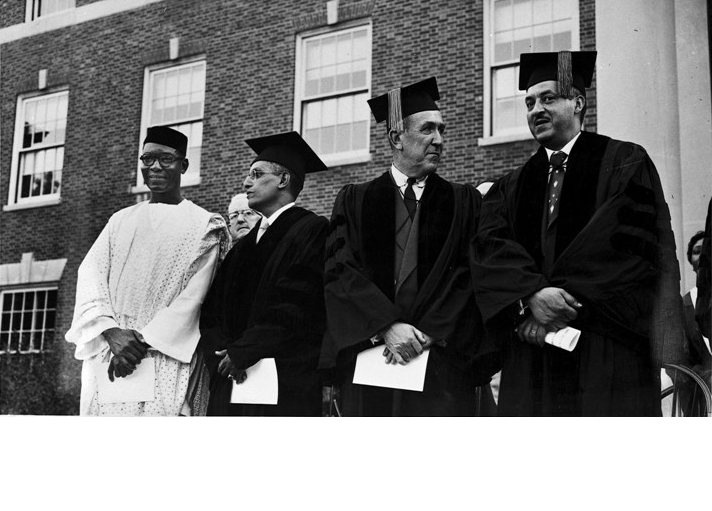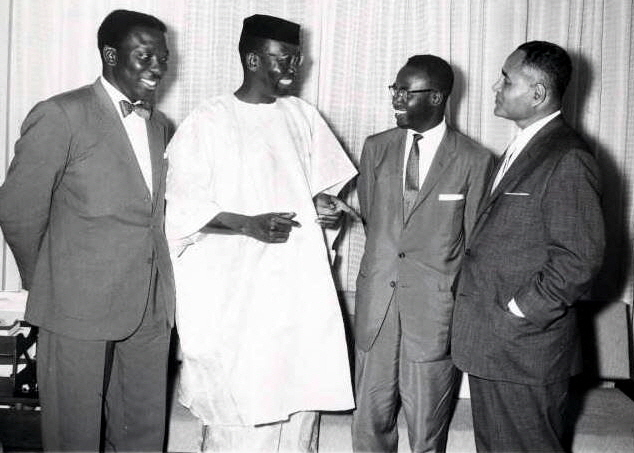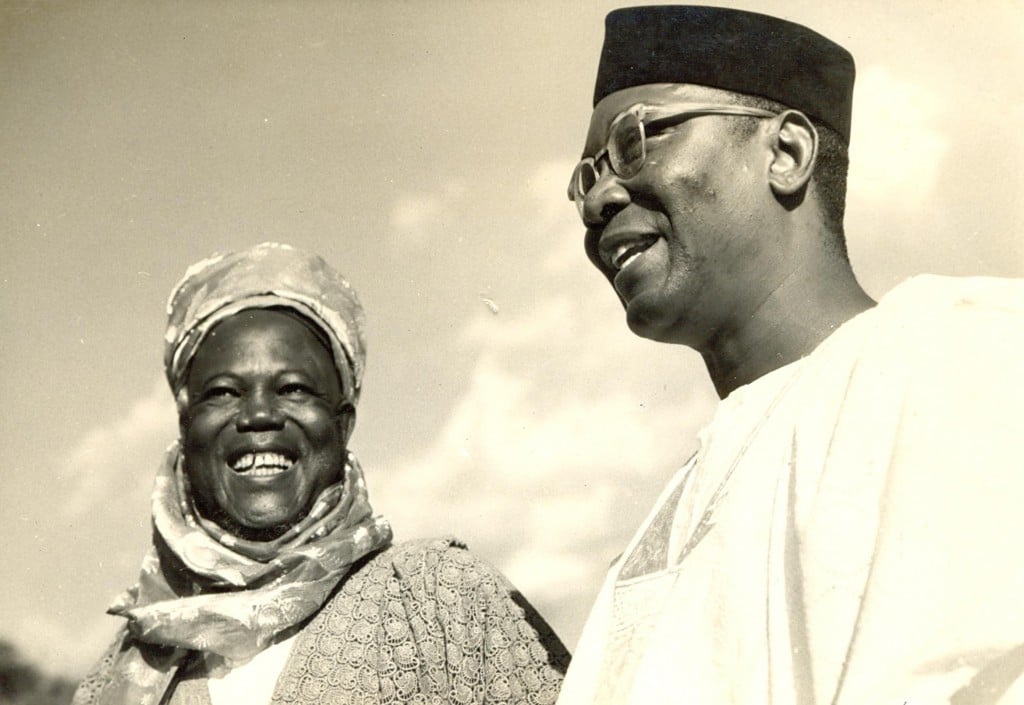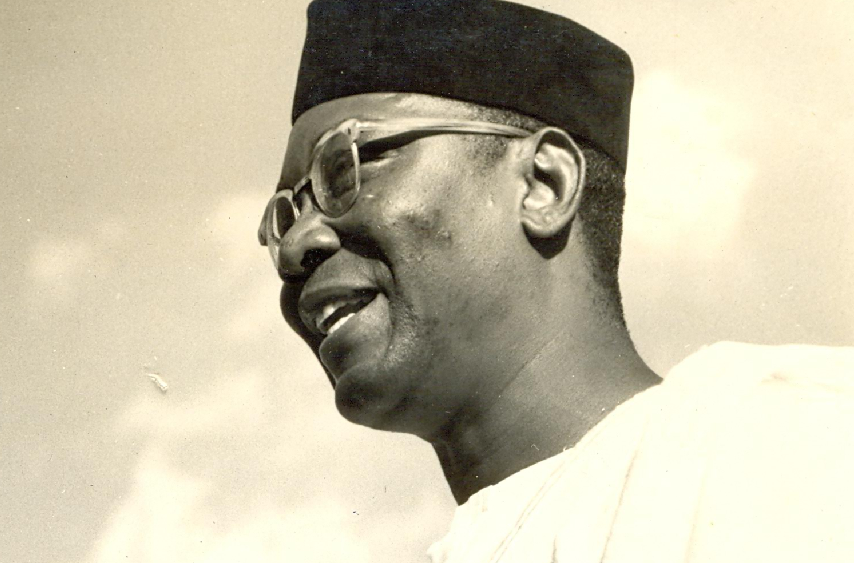Of all the stars that lightened Nigeria’s political firmament in its early years, Benjamin Nnamdi Azikiwe, is perhaps, the most incandescent.
He loomed “ponderously” on the national life, and even years after ascending to the place yonder, Azikiwe still lives in the consciousness and recesses of many – Nigerians, Africans, and even the British whom he gave gut upsets until they left the country.
Zik was a man of many firsts. He was the first governor-general of Nigeria (1960), the first president of Nigeria (1963), the first Nigerian to be named to the Privy Council in the UK, and the first Nigerian leader to acquire multiple academic degrees. He had degrees in religious studies, history and political science, anthropology, world politics, and in some other disciplines.
Zik, no doubt, contributed immeasurably to the political parturition of Nigeria. He alongside Herbert Macaulay founded the National Council of Nigeria and the Cameroons (NCNC) in 1944 – a political party which was a mortal force in the anti-colonialism struggle. He is the progenitor of modern Nigeria!
Advertisement

Zik did not become the father of “renascent” Nigeria by sheer providence. He trudged in quick sands, escaped an assassination attempt and denied himself personal reliefs to steady the country after the colonialists took a hike.
A thoroughbred Nigerian, the late statesman could speak fluently the three major indigenous languages – Igbo, Hausa and Yoruba.
He was born on May 11, 1904.
Advertisement
BORN IN THE NORTHERN COLONIAL CAPITAL
Zik was born in Zungeru, a town in Niger state. At the time, it was the capital of the British protectorate of Northern Nigeria. The colonialists preferred the town to Lokoja, the first capital, because of its accessibility by boat. Odumegwu Ojukwu, the late respected Igbo leader, was born here too.
Zik had a well-rounded childhood. His father Obed Edom Chukwuemeka Azikiwe, from Onitsha in Anambra state, was a clerk in the colonial government, and he was often deployed and redeployed to different stations across the country at the behest of the government. This meant that the young Zik was peripatetic.
Living among the diverse peoples of Nigeria exposed Zik to the rich cultural heritage of the country. It gave him a robust understanding of the intricacies in governing a plural society like Nigeria.
Advertisement
In his early years, he coursed through schools – from Holy Trinity and Christ Church Schools in Onitsha to Hope Waddell Training College in Calabar, and then to Methodist Boys High School in Lagos.
He was also a blue-blood. His mother’s great grandfather was the king of Onitsha – Obi Anazenwu.
STOWED AWAY ON A SHIP TO GET TO US

After Zik completed his secondary school education in the 1920s, he was hungry for a taste of tertiary education abroad. This hunger was fired up by the lectures of James Aggrey, an educationist, who proposed that young Africans should get university education in the west and then repatriate the knowledge they had acquired to their homeland. Aggrey also assisted the lad with a list of schools he could apply to.
Advertisement
Zik applied to study in some schools in the US, and he got admission at Storer College. However, he was faced with a challenge – no money for tuition and upkeep. He then devised a means of getting himself abroad by reaching a deal with a seaman to stow away on his ship. But this plan soon became abortive after his travel companion fell sick, and he then had to disembark in Ghana.
But luck grinned at the determined young man. His father was able to raise 300 pounds for him to fulfil his dreams. At the college, he participated in sports, mainly to keep himself afloat. He later won the Storer College welterweight boxing title.
Advertisement
Soon, he moved to Howard University, Washington DC, and then to Lincoln University – where he bagged several degrees. He returned to Nigeria in 1934.
HE FOUGHT THE BRITISH WITH A BLAZING PEN
Advertisement
Azikiwe was a consummate writer. He dealt the harshest of blows to the British establishment through his column, ‘Inside Stuff by Zik’.
After suffering rejections from some employers – even from Kings College, Lagos – Zik of Africa, as he is fondly called, left for Ghana where a businessman, Alfred Oxcansey, bankrolled the setting up of a newspaper, the ‘African Morning Post’, which the late enigma edited.
Advertisement
Zik continued to missile the colonial government and the pompous elite whose survival depended on the establishment. He preached black nationalism, mental emancipation, and national Risorgimento. In Ghana, he wrote a book ‘Renascent Africa’ in which he outlined philosophies Africans must live by.
He returned to Nigeria in 1937, and he established the ‘West African Pilot’ – a platform he used to chant Nigerian nationalism. Not long afterwards, his media company became an empire spawning subsidiaries. He established the African Continental Bank and Penny – a chain of restaurants.
However, the West African Pilot later became the media armada of Zik’s party, the NCNC.
A POLITICAL PHENOM

Zik had a streak of success in politics. He was elected to the Legislative Council of Nigeria in Lagos in 1950. His party, the NCNC, shared dominance with the Action Group – a party populated by the Yoruba – in the south-west. This was rare because political parties at the time were run along regional lines – Northern Peoples Congress (NPC) for the north, Action Group for the south-west, and NCNC – largely for the eastern region, where Zik later became premier in 1954.
After Nigeria gained independence in 1960, Zik became governor-general, and Tafawa Balewa, prime minister. He became president, though ceremonial, in 1963 when Nigeria became a republic.
He attempted twice – 1979 and 1983 – to run for office of president on the platform of the Nigeria Peoples Party (NPP), but he was unsuccessful. He retired from politics afterwards.
RUMOURED DEAD
Reports rippled on November 8, 1989 that Zik of Africa had died. He was 85 at the time. These reports were fossilised by NTA and major newspapers.
However, it turned out they were false. The Iroko was still standing. Pained by the news of his death, Zik reportedly said those who wished him dead would kiss the earth before him.
The incident remains a blot on Nigerian journalism.
The legendary Zik passed away on May 11, 1996 – 21 years ago – in Enugu at the age of 91.
Add a comment







